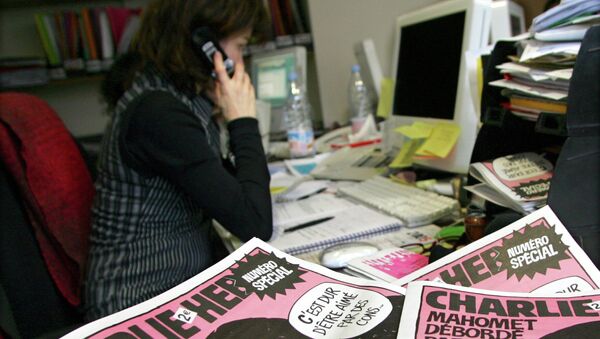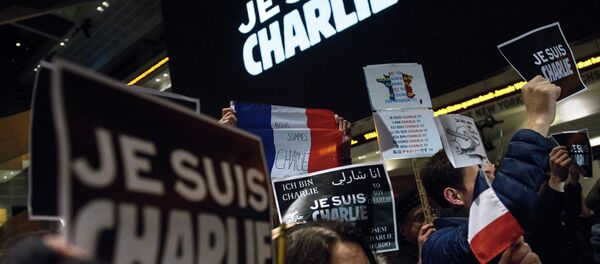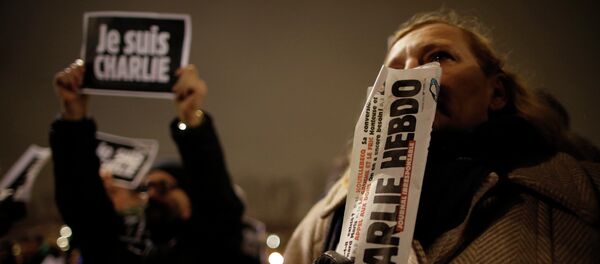"The most likely explanation is that the killings are 'revenge' for Charlie Hebdo's high-profile policy of publishing cartoons lampooning Islamist extremism and specifically using a caricature of the Prophet Muhammad," Mark Almond, professor of history at Oxford University told Sputnik.
Earlier on Wednesday, three armed men stormed into the offices of the Charlie Hebdo satirical magazine which had published caricatures of the Prophet Muhammad. At least 12 people were shot dead, 10 of them journalists and two police officers, according to media reports. The killers fled the scene and a manhunt is underway.
"The agenda of an Islamist group carrying out such an attack could include specifically punishing the journalists or cartoonists — they are among the dead — but more generally inciting fear among the French media — especially so long as the attackers are on the loose," Almond explained.
"Charlie Hebdo was merely a pretext for the jihadists to commit a massacre of non-Muslims. If it had not been Charlie Hebdo, it would have been something else," Tarek Fatah, a Canadian writer and activist told Sputnik.
The leader of the Denmark-based action group Stop Islamisation of Europe (SIOE) Anders Gravers told Sputnik that the attack is undoubtedly linked to the cartoons published by Charlie Hebdo.
"They have threatened Charlie Hebdo before. They have brought down the office before. And I can see the last tweet from Hedbo where they made fun of the Islamic State, so yes, they are connected," Gravers said.
He also underlined that the shooting is not a question of multiculturalism, which has been long promoted across Europe.
"I'm not against multiculturalism, I'm against Islam. These are two different things. We, in Denmark, also have a multicultural society, and the only problem we have with other cultures is one culture and that is the Islamic one," Gravers said adding that Europeans and Muslims are unlikely to co-exist peacefully in the West.
However, Professor Mark Almond pointed out that despite the rhetoric about a Muslim threat and the "solo" attacks by motorists in France before Christmas as well as the Toulouse shootings of French soldiers and Jewish civilians in 2012, "what is striking is how limited inter-communal violence has been in France."
He went on to explain that the logic of the attack might seem absurd – "not least because it will clearly further strain relations between the 6 million or so French Muslims and the rest of the population — but deepening that divide might well be the real aim."
Almond stressed that from the point of view of a terrorist, "the worse inter-community relations are, the better," since if ordinary Muslims experience a backlash at this atrocity, "then some at least might gravitate to the extremist camp."
Tarek Fatah concluded that the shooting in Paris is "Islamism's declaration of war and the West's inability to even understand the issue."
The Charlie Hebdo weekly magazine has previously been involved in a number of controversies involving radical Islamic fundamentalists. In particular, the magazine's former office was fire-bombed in 2011 after the outlet published controversial cartoons depicting the prophet Muhammad.



